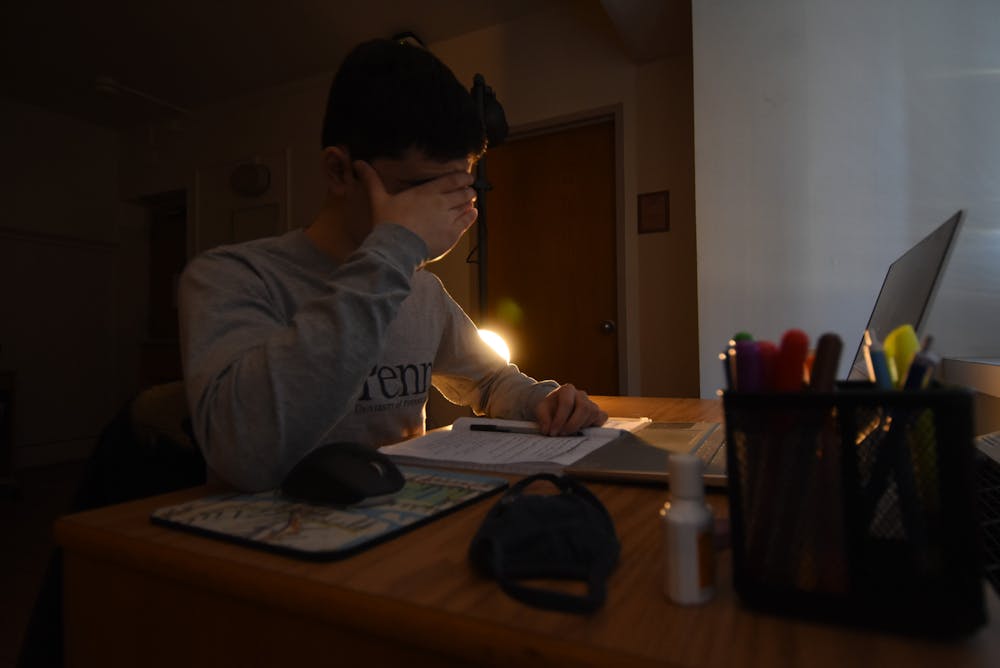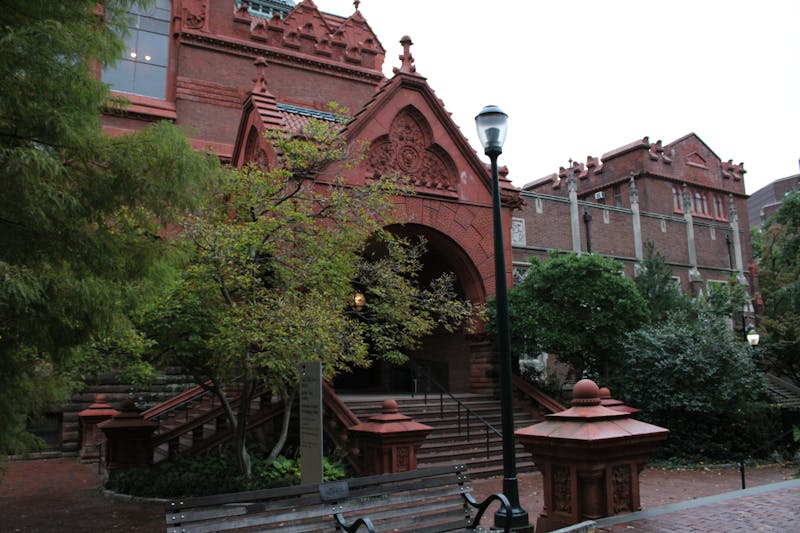
"Wake me up in 10 minutes," I instructed my friend. "I need to finish my Daily Pennsylvanian article today."
Half an hour later, I groggily lifted my head off the table, my shoulder sore from her relentless poking. A melted vanilla sweet cream cold brew (I thought ordering something gross would put me in a serious studying mood) sat abandoned on my left, and the faint imprint of my ring was pressed into my right cheek.
The sophomore slump is real — and there’s no escaping it. But what does it mean? It’s the disappointment of realizing we might not live up to the high expectations that we set for ourselves in our first year. It’s that creeping sense that classes drag on, assignments feel less pressing, and even once-busy evenings turn lazier. This slump isn’t unique to college students; athletes may slump in their second season, artists in their second album, and everyone knows the saying: The sequel is always worse than the original movie!
Our first year was the “original movie,” and it was all about discovery — making new friends, sampling diverse classes, and shaping who we wanted to be. For many, it was a chance to shed high school labels and complete reinvention. Friendships felt fresh and exhilarating; I remember spending days inseparable with my friends, gathering at Hill College House every evening without fail or — when we were feeling fancy — at Lauder College House. Clubs opened doors to new opportunities and connections. School became our entire life, and we were motivated by the momentum of high school and a desire to succeed.
But as sophomore year began, the glow of our first year began to fade. My friends and I no longer felt the urge to stay up to study all night, invest time in relationships that didn’t fulfill us, or push through when feeling drained. Our first-year willingness to “rally” — to ignore exhaustion in order to experience everything Penn had to offer — had dwindled. Last year, going out multiple times a week and cramming on the ground floor of Van Pelt-Dietrich Library till turned-off lights seemed normal, no matter how little sleep we had. Now, I can't even imagine leaving my dorm for anything but a Chipotle bowl after my last class of the day.
A big part of this shift is sophomore housing. In our first year, we were in the heart of campus, surrounded by friends, libraries, and classes. Living so close to everything gave us energy; everywhere we turned, we’d see people heading to events or studying on Locust Walk. But now, on the other side of the bridge, it’s quieter and more comfortable. Our new dorms are equipped with amenities many of our first-year dorms never had. This comfort, while pleasant, has made it easier to stay in and avoid the vibrant energy that kept us going last year.
This change in address isn’t just physical; it's a symbol of the sophomore slump itself. In our first year, we were swept up in the excitement of discovery, surrounded by constant stimulation that made us feel alive. Now, our routines have grown quieter, our urgency has faded, and our motivation has weakened. Without the buzz of campus around us, it takes extra effort to find motivation within ourselves.
Sophomores at Penn face career expectations early on, adding to the slump. With recruiting starting as early as fall semester for certain industries, the pressure to “have it all figured out” feels intense. The well-worn question, “What’s your major?” becomes more loaded, often tied to the looming, “What’s next?” The finish line feels closer than ever, and if we don’t sprint forward now, it feels like we’ll be left behind.
Who can blame sophomores for feeling this way? With the pressure of plans, expectations, and stress, we slump. The real fear is that it won’t end with sophomore year — that this slump will follow us beyond college. So, how do we escape the sophomore slump before it takes hold?
These are the basic solutions. As you may have heard a trillion times, explore Philadelphia! It’s easy to get stuck in the campus bubble, especially with mounting deadlines. But stepping outside, whether to attend the numerous festivals held in the city every week, drop by the farmers market in Clark Park on Saturdays, or try new restaurants in Center City (it’s time to revive dinner clubs) can feel surprisingly refreshing.
Secondly, romanticize the routine. Treat your morning coffee from Williams Café as a moment of calm, and make a ritual out of a weekly study session in Fisher Fine Arts Library. No more cramming! Romanticizing the mundane can transform the grind into something meaningful, reminding us of the small joys within the chaos.
Even with these solutions, I still can’t help but wonder whether we can really call it a “sophomore” slump? A 2015 CIS Senior Design Project from the School of Engineering and Applied Science analyzed social media feeds from the top 25 universities in the country and found Penn ranked highest in depression. Despite this, Penn’s decision to merge the former Counseling and Psychological Services with the Student Health Service in 2022 without properly notifying the student body has raised concerns about the University’s commitment to mental health. The “slump” is often a symptom of broader pressures that affect students across all years, not just sophomores. Don’t let the "Penn Face" fool you: You're not alone! Penn can certainly do more to support students struggling with the weight of academic and career pressures, especially as the slump shows how these pressures weigh on all of us.
Albeit all of this, we can keep moving forward. Of course, sophomore year and Penn life are not all bad — passions are still found, deadlines are met, and friendships form every day. Beating the slump isn’t about denying it; it’s about embracing the ebb and flow, letting ourselves grow in the lulls, and pushing forward through the highs and lows. At Penn, it’s realizing that the journey is as important as the destination — and that sometimes, it’s okay to pause along the way.
CHLOE CHEN is a College sophomore studying English and economics from Vancouver, B.C. Her email is chloeec@sas.upenn.edu.
The Daily Pennsylvanian is an independent, student-run newspaper. Please consider making a donation to support the coverage that shapes the University. Your generosity ensures a future of strong journalism at Penn.
Donate












